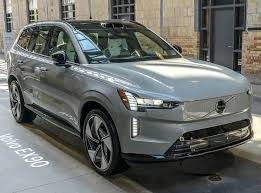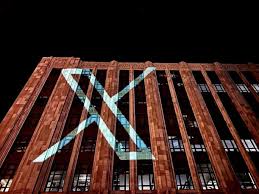Volvo Cars is introducing the first-ever EV battery passport in the world, which will track the source of components, recycled materials, raw materials, and carbon footprint for its upcoming flagship EX90 SUV. Production of the vehicle is set to begin shortly.
The passport took more than five years to produce and was created by Volvo a company controlled by China’s Geely, in collaboration with UK startup Circulor, which maps supply networks for businesses using blockchain technology.
Starting in February 2027, battery passports that disclose the composition of batteries, including the source of essential elements, their carbon impact, and their recycled content, will be required for electric vehicles (EVs) marketed in the European Union.
According to Vanessa Butani, head of global sustainability at Volvo, the company wanted to be open with consumers as it plans to produce completely electric vehicles by 2030, which is why the passport was introduced over three years before rules go into effect.
Laptops 1000“It’s really important for us to be a pioneer and a leader,” added Butani.
Production of the battery-passporting EX90 SUV is scheduled to begin shortly at Volvo’s Charleston, South Carolina facility.
It is anticipated that customers in North America and Europe will begin receiving deliveries of the vehicle in the second half of the year.
A QR code located on the inside of the driver’s door provides Volvo owners with access to a streamlined version of the passport. Butani stated that all of Volvo’s electric vehicles would eventually have the passport.
A more comprehensive passport will be provided to regulatory bodies.
It will also come with current data on the status of the EV battery, which is essential for determining the value of used EVs, and will run about $10 per Volvo, according to Circulor CEO Douglas Johnson-Poensgen.
In order to calculate a total carbon footprint, Circulor’s system tracks battery materials from the mine to specific cars.
It does this by utilizing the production systems of suppliers to track materials throughout the supply chain and by examining the suppliers’ monthly energy bills to determine how much of their energy comes from renewable sources.

















